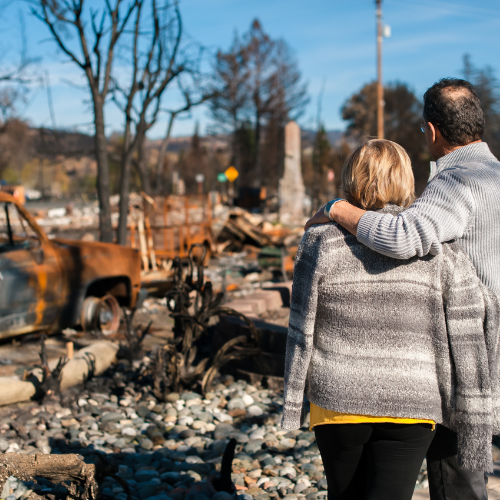
Disasters such as hurricanes, tornadoes, floods, and earthquakes can strike with little or no warning. September is National Preparedness Month, making it a good time for you and your household to make a plan if you need to evacuate your home or get trapped inside for days. The Federal Emergency Management Agency (FEMA) recommends discussing the following questions when creating an emergency plan:
- How will I receive emergency alerts and warnings?
- What is my shelter plan?
- What is my evacuation route?
- What is my household communication plan?
- Do I need to update my emergency preparedness kit?
You’ll also need to consider your household’s specific needs, make an emergency plan, and practice it with your family members. These tips pertain to your home, but remember that emergencies can happen anywhere. Visit FEMA’s website, Ready.gov, to learn more about preparing for emergencies at home, at work, and on the road.
Emergency Supply Kit Checklist
- Water
- Nonperishable food
- Flashlight
- Whistle
- Dust mask
- Local maps
- Manual can opener
- Battery-powered radio
- First-aid kit
- Pet supplies
Contact us to see how you could minimize risk:
Recent News
6 Open Enrollment Communication Tips
Effective communication is critical to educate and inform employees about new, returning or expanded benefits options. Consider these six open enrollment communication tips:
Reducing Cargo Theft
Cargo theft costs the U.S. trucking industry billions each year, damaging finances, trust, and operations. Carriers must take proactive steps to protect their shipments.
Compliance Update: Key Regulatory Changes for Employer Health Plans
Discover what employers need to know about the latest IRS and DOL updates for 2026 — from ACA affordability and reporting to new FSA and transparency requirements.
Underinsurance: Causes and Consequences
Strong insurance is essential—one uninsured event can disrupt operations and threaten stability. Underinsurance, often from outdated valuations or budget cuts, leaves businesses financially vulnerable.
Pay-or-Play Penalties Will Increase for 2026
Applicable large employers (50+ FTEs) may face higher ACA penalties in 2026 if they don’t offer affordable, minimum-value health coverage.
What to Know About This Year’s Flu Season
The flu season in the United States lasts from October through May, with peak flu activity between December and March.

